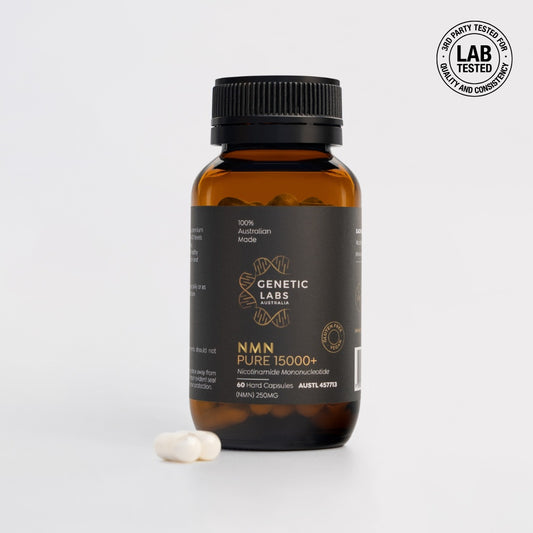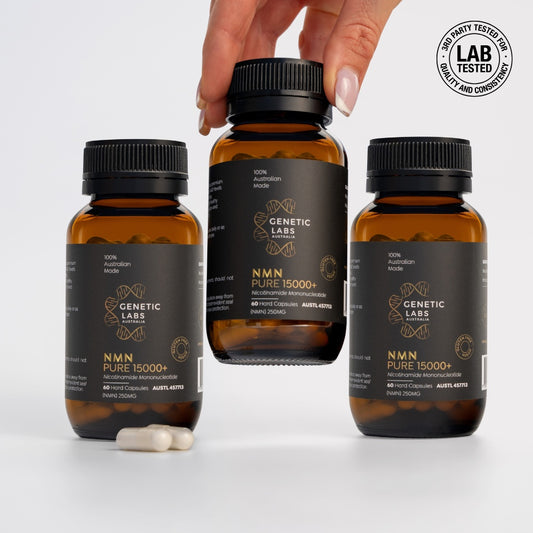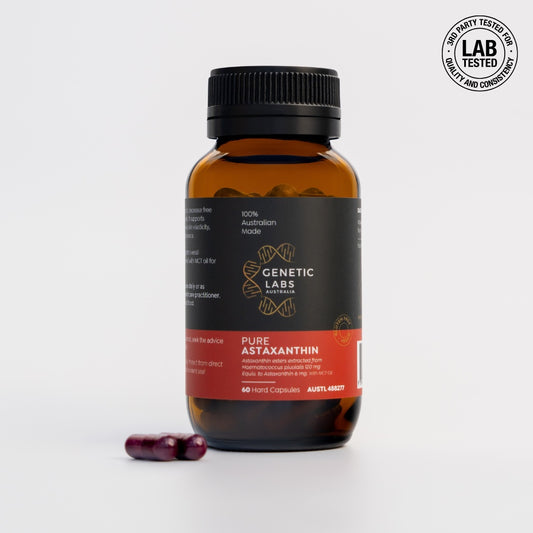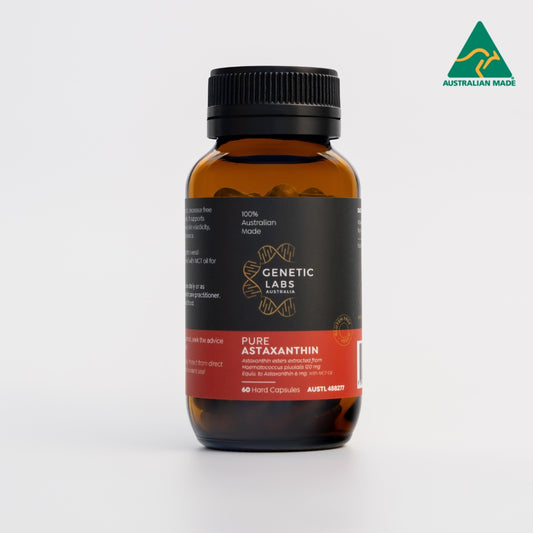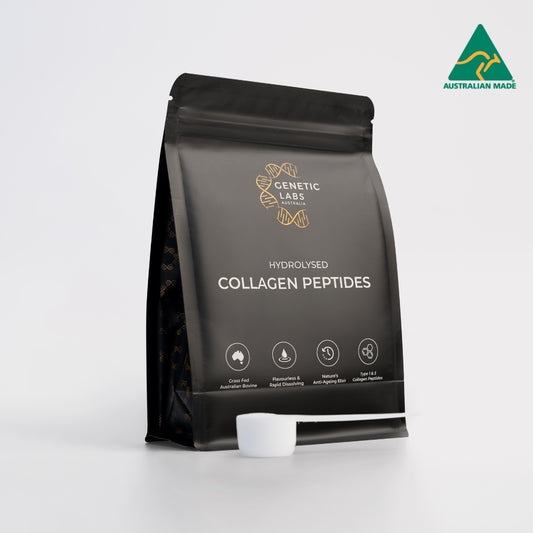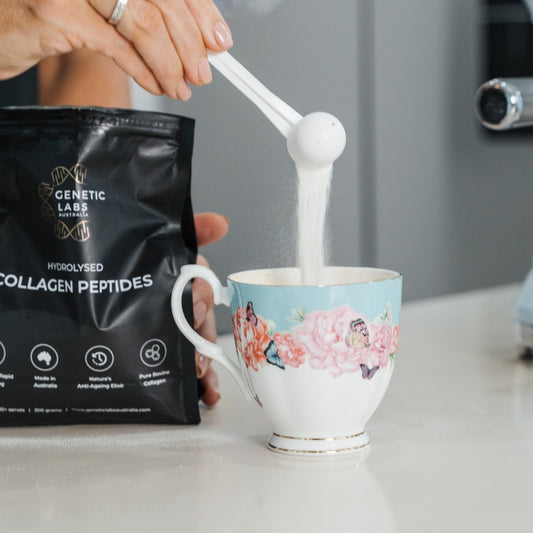How Berberine Nurtures Your Gut and Defends Your Immune System
Berberine is one of the most exciting plant compounds being studied in modern health science. Found in the roots, rhizomes, and bark of plants like Berberis vulgaris, berberine has been used in traditional medicine for centuries. But what does berberine actually do — and is there any proof?
Today, researchers are uncovering just how powerful this natural compound can be for blood sugar control, cholesterol management, inflammation, liver support, and gut health. Let’s break it all down — with science to back it up.
1. Berberine Helps Regulate Blood Sugar and Insulin Sensitivity
One of the most studied uses for berberine is its ability to support blood glucose control and improve insulin sensitivity — key factors in metabolic health and longevity.
How it works
Berberine activates AMPK (AMP-activated protein kinase), an enzyme that acts like a metabolic master switch. AMPK improves how the body uses glucose and encourages insulin receptors to function more efficiently.
What the science says
In a meta-analysis of 14 randomized clinical trials, berberine significantly lowered fasting blood glucose, HbA1c, and postprandial glucose levels in people with type 2 diabetes — performing comparably to metformin in some cases.
Key study:
- Zhang Y et al. (2008). Berberine in the treatment of type 2 diabetes mellitus: a systemic review and meta-analysis. Metabolism. 57(5):712–717. doi:10.1016/j.metabol.2007.11.018.
2. Berberine Reduces Inflammation and Oxidative Stress
Chronic inflammation is a root cause of many age-related diseases — from heart disease to neurodegeneration. Berberine helps fight inflammation at the cellular level.
Mechanism of action
Berberine has been shown to suppress the production of pro-inflammatory cytokines like IL-6, TNF-α, and CRP. It also increases antioxidant enzyme activity, reducing oxidative stress and cellular damage.
Key study:
- Kong W et al. (2004). Berberine is a novel cholesterol-lowering drug working through a unique mechanism distinct from statins. Nature Medicine. 10(12):1344–1351. doi:10.1038/nm1135.
Additional review:
- Tillhon M et al. (2012). Berberine: new perspectives for old remedies. Biochemical Pharmacology. 84(10):1260–1267. doi:10.1016/j.bcp.2012.07.072.
3. Berberine Improves Cholesterol and Heart Health
Berberine helps maintain healthy lipid levels and supports cardiovascular function.
What it does
- Lowers LDL cholesterol and triglycerides
- Raises HDL cholesterol
- Improves endothelial function
- May reduce arterial plaque formation
In one clinical trial, berberine lowered LDL-C by 25% and triglycerides by 35% — comparable to low-dose statins, without statin-related side effects.
Key study:
- Koppen LM, Whitaker A, Rosene A, Beckett RD. (2017). Efficacy of berberine alone and in combination for the treatment of hyperlipidemia: a systematic review. Journal of Evidence-Based Complementary & Alternative Medicine. 22(4):956–968.
4. Berberine Supports Gut Health and Immune Function
Your gut and immune system are intimately connected — and berberine supports both.
How it helps
Berberine has antimicrobial effects that help regulate the overgrowth of harmful bacteria, fungi, and parasites in the gut. At the same time, it promotes the growth of beneficial bacteria like Bifidobacterium and Lactobacillus.
It also strengthens the gut barrier, reducing gut permeability ("leaky gut") and inflammation — two factors strongly linked to autoimmunity and chronic illness.
Key study:
- Zhang B et al. (2022). Berberine ameliorates DSS-induced intestinal mucosal barrier dysfunction via immune modulation and Wnt/β-catenin signaling. International Journal of Biological Sciences. 18(4):1381–1395. https://www.ijbs.com/v18p1381.htm
Additional clinical trial:
- Lu Y et al. (2022). Berberine combined with Bifidobacterium improves glycolipid metabolism by modulating the gut microbiota in hyperglycemia: a randomized double-blind placebo-controlled study. Frontiers in Cellular and Infection Microbiology.
5. Berberine Protects Liver Function and Reduces Fat Accumulation
Berberine has shown promise in supporting liver health, particularly in people with fatty liver disease (NAFLD or MAFLD).
Evidence from human trials
Clinical studies have shown that berberine improves liver enzyme markers (ALT, AST), reduces hepatic fat content, and improves insulin sensitivity in patients with NAFLD.
In a 2015 randomized controlled trial involving 184 adults with NAFLD, those given 500 mg of berberine three times daily for 16 weeks saw a 53% reduction in liver fat, along with significant improvements in blood sugar, lipid levels, and body weight — far outperforming lifestyle changes alone.
A 2024 meta-analysis of 12 clinical trials (811 patients) echoed these findings, showing improvements in liver enzymes, insulin resistance, BMI, and lipids — with a strong safety profile.
Key study:
- Zhang Y et al. (2015). Berberine reduces liver fat and improves insulin resistance in patients with non-alcoholic fatty liver disease: a randomized, open-label clinical trial. PLOS ONE.
Additional meta-analysis:
- Sun D et al. (2024). Effects of berberine on liver function and metabolic indices in patients with NAFLD: a systematic review and meta-analysis of randomized controlled trials. Journal of Translational Medicine.
Final Thoughts: Should You Try Berberine?
Berberine is one of the most well-researched natural compounds available — particularly for metabolic health. With benefits that span blood sugar, cholesterol, inflammation, gut health, and liver support, it’s no surprise berberine is gaining traction in both natural and clinical medicine.
Key Takeaways:
- Activates AMPK, a key metabolic regulator
- Supports healthy blood sugar and insulin
- Reduces inflammation and oxidative stress
- Improves cholesterol and cardiovascular function
- Supports gut microbiome balance
- Promotes healthy liver enzyme activity
What to Know Before Supplementing
- Dosage: Most clinical studies use 500 mg, taken 2–3 times per day with meals.
- Form: Berberine HCl is the most commonly studied and bioavailable form.
- Safety: Generally well tolerated. May cause mild GI discomfort in some people.
-
Medication interactions: Can enhance the effects of glucose-lowering or blood pressure medications. Speak to your doctor if you're on prescription meds.


